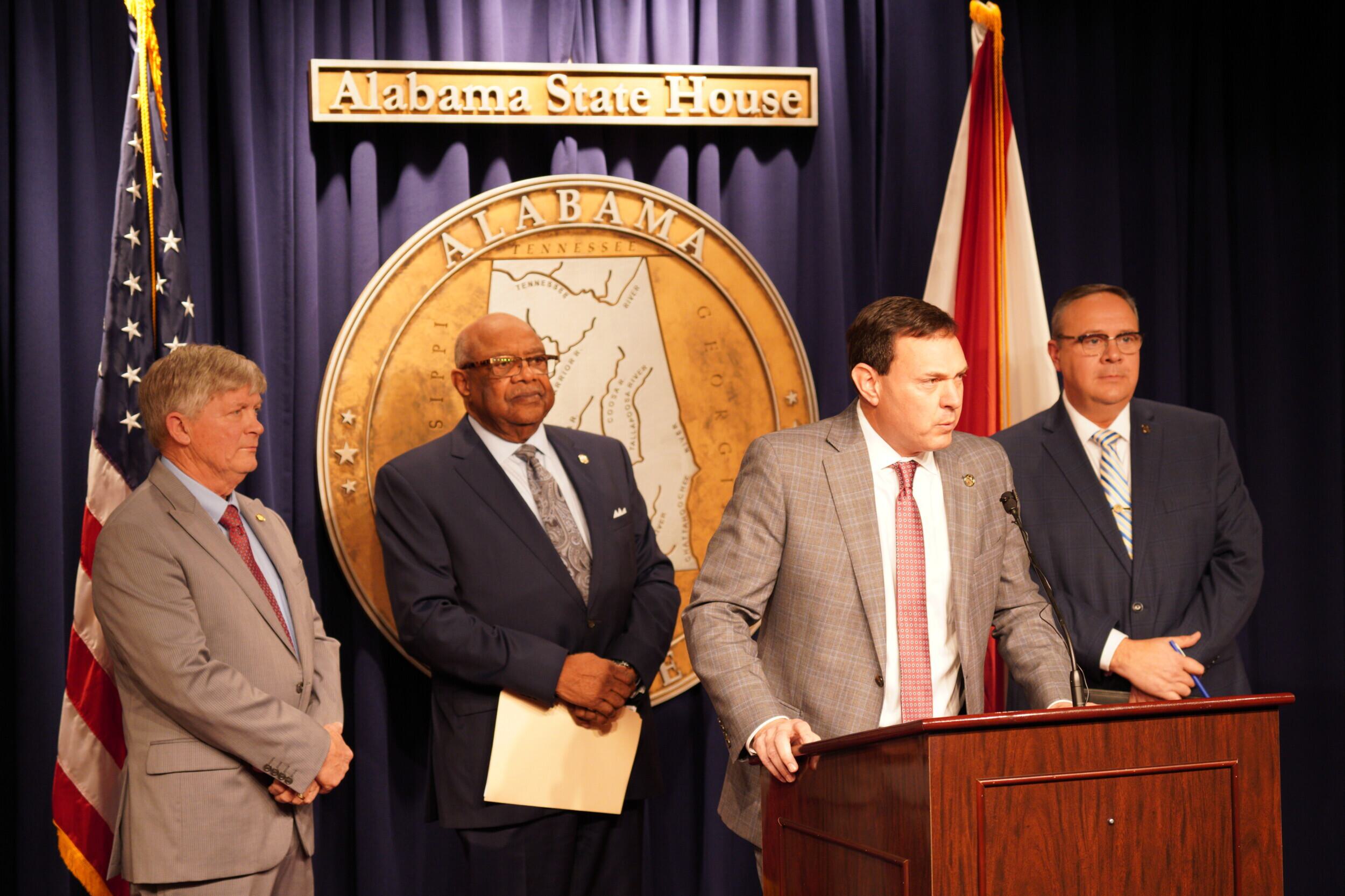MONTGOMERY — Members of the Alabama House Gaming Study Group revealed their plan for a comprehensive gaming plan as the push for statewide gambling begins in Montgomery.
The much-anticipated gaming legislation is scheduled to be dropped Thursday. On Wednesday, a group of lawmakers supporting the legislation presented the bill's key points to media, lobbyists and state interests at the Montgomery State House.
State Rep. Chris Blackshear (R-Phenix City), who is carrying the bill in the House, presented the facts of the two bills. One bill will repeal all constitutional amendments allowing gambling in certain parts of the state and remove the state’s constitutional gambling prohibition. The other authorizes a series of provisions legalizing casino gaming in specific locations and a statewide lottery and online sports betting.
SEE ALSO — First Look: Gaming legislation to be introduced in the Alabama House
Constitutional amendments can only be approved by the legislature; final passage requires a favorable vote from the Alabama public. Blackshear said the constitutional amendment would appear on the November 8 general election ballot if passed.
Boasting poll results of 405 registered Alabama voters, the group claimed that 91% support allowing the people to vote on gaming, 76% support a regulatory gaming bill and 89% support making gaming facilities pay state taxes.
State Rep. Andy Whitt (R-Harvest) began the conference by saying illegal gambling occurs in all 67 Alabama counties and that the new legislation would allow the state to crack down on illegal gambling operations.
“Above all, we believe the people deserve the right to vote on this issue,” Whitt said.
“We can put any piece of legislation together that we want, but it will only pass and become law if the citizens make that decision, not your legislators that are elected here,” said State Sen. Greg Albritton (R-Atmore), who is carrying the bill in the Senate. “We’re just trying to get a framework together that we think would work best for all. “
State Rep. Sam Jones (D-Mobile) also spoke at the press conference, supporting the bill and praising Democratic inclusion in formulating the legislation, which he claimed was missing in previous attempts to legalize gambling in the state.
According to Blackshear, the bill includes the establishment of the Alabama Gaming Commission, which consists of four members appointed by the governor, two by the speaker of the house (including a minority leader appointee), two by the Senate President Pro Tempore and one by the Lieutenant Governor. The commission will appoint an executive director.
It would also create an enforcement arm not administered under the Alabama Law Enforcement Agency (ALEA). Instead, the executive director will appoint a gaming enforcement officer to hire investigators, auditors, compliance officers and administrative staff. Those staff certified under the Alabama Peace Officer Standards and Training Commission will have arrest powers. Notably, the attorney general’s office will not handle prosecutor responsibilities; those fall to the local district attorney.
The licensing will be limited to specific counties in the state, including three already-existing locations operated by the Poarch Band of Creek Indians (PCI) on their federal tribal lands.
The locations are the City of Birmingham, Macon, Greene, Lowndes, Houston and Mobile Counties. The governor will be authorized to enter into a negotiated agreement, also called a compact, with the PCI for a location rumored to be in Northeast Alabama.
Several of those counties currently have gambling establishments. However, Blackshear claimed those existing non-PCI locations are not guaranteed a license.
The commission is only responsible for approving seven gaming licenses. Potential bidders must submit a minimum $5 million licensing fee, with no upper limit. The minimum phase one investment is $35 million, and construction must begin within 12 months of the license being issued. All potential locations are subject to approval by a county commission or city council. However, if desired, the local body can put the issue on a local referendum.
Blackshear said any additional gaming licenses would require approval of the legislature.
The bill creates the Alabama Lottery Corporation for the state lottery, which includes seven voting members appointed by the commission. All state lottery funds will go to the Lottery for Education Fund, which the bill will create if passed.
All revenue from non-lottery gaming will go to the Gaming Trust Fund (GTF). All GTF funds will funnel into the state’s “rainy day fund” until the fund reaches $300 million. After that, 95% will go to the GTF, 3% to the county commission and 2% to the county or municipality where the gaming facility is located.
After taking care of the gaming commission expenses, the remaining funds will be subject to the state’s annual supplemental appropriations process. Supplemental funds can then be distributed to non-reoccurring state expenses.
To connect with the author of this story or to comment, email craig.monger@1819news.com.
Don't miss out! Subscribe to our newsletter and get our top stories every weekday morning.










